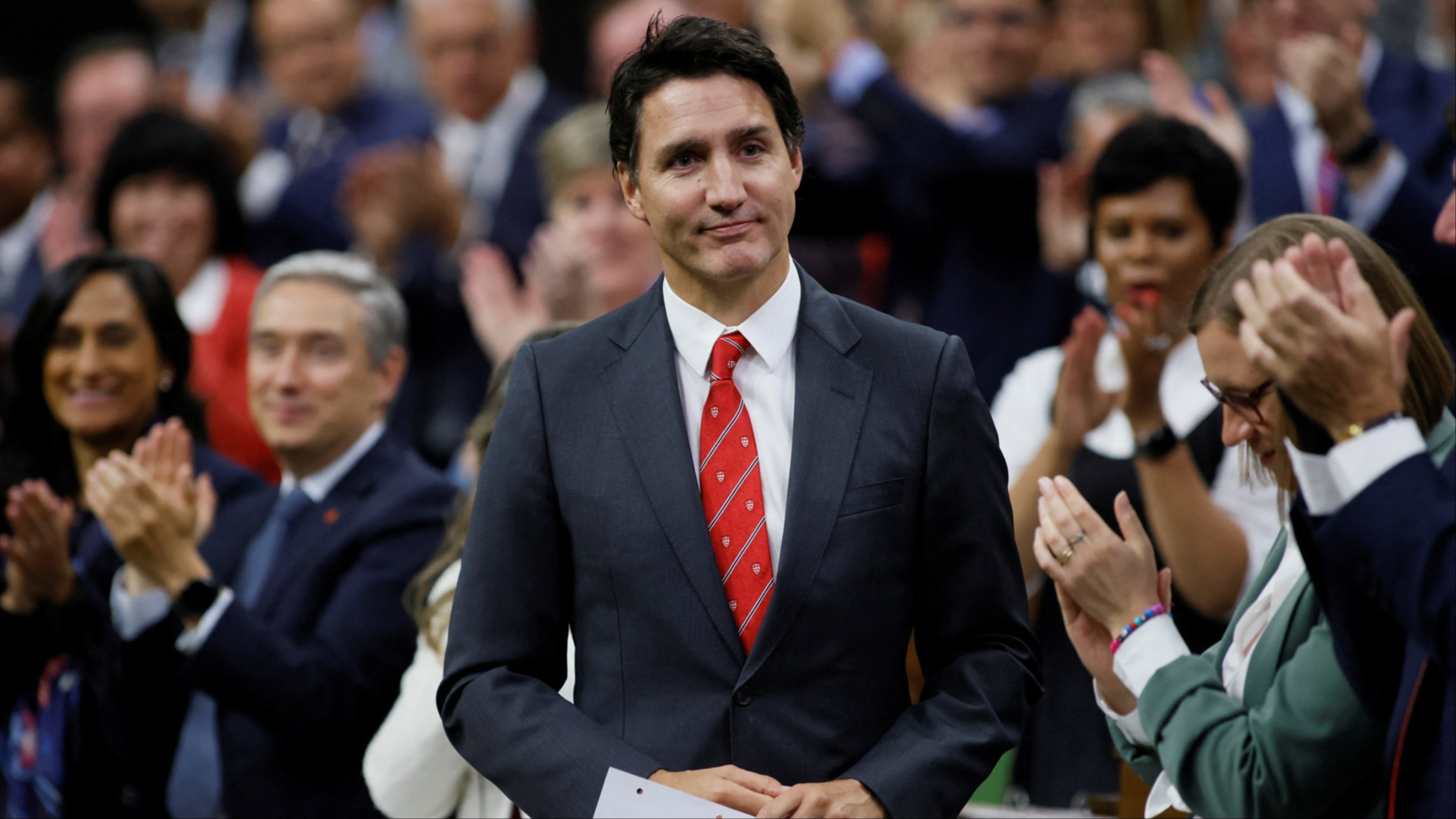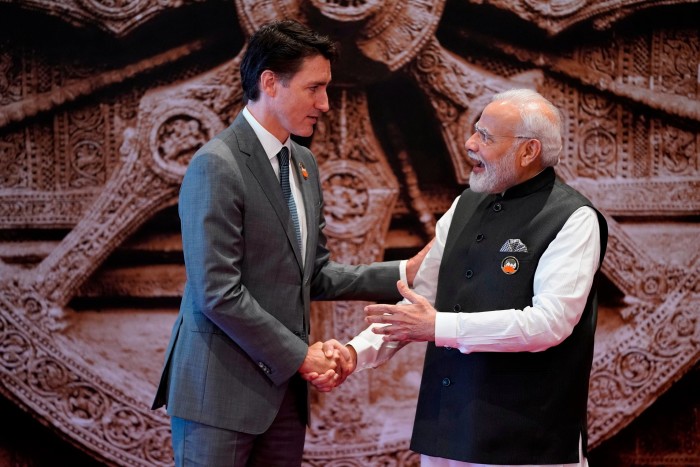Get free Canada updates
We will send it to you myFT Daily Digest Email rounding up is recent Canada News every morning.

© CBC/Reuters
Canadian Prime Minister Justin Trudeau addressed Parliament on Monday
India on Tuesday expelled Canada’s top diplomat after an unusual rift deepened over allegations of New Delhi’s involvement in the killing of a Sikh activist in British Columbia.
A day after Prime Minister Justin Trudeau said Canadian authorities were investigating whether New Delhi’s “agents” were behind the June killing of Hardeep Singh Nijjar, Narendra Modi’s government dismissed Ottawa’s reports as “absurd and motivated.”
“India has never been accused of assassinating a protester abroad,” said Brahma Sellane, professor emeritus at the Center for Policy Research, a New Delhi think tank. “It’s something that authoritarian regimes do.”
Citing intelligence from the National Security Services, Trudeau told Parliament on Monday that there were “credible allegations” of the Indian government’s involvement in the shooting in Surrey, a suburb of Vancouver with a large Sikh community. He also said that he raised the issue with Modi at the G20 summit last week.
“Any involvement of a foreign government in the killing of a Canadian citizen on Canadian soil is an unacceptable violation of our sovereignty,” Trudeau said. On Tuesday, he called on India to deal with the issue “very seriously”, adding that “we are not looking to provoke or escalate”.

But New Delhi said it had asked a senior Canadian diplomat to leave the country due to “growing concern over the interference of Canadian diplomats in our internal affairs and their involvement in anti-India activities”. The move comes in response to Canada’s expulsion of a top Indian diplomat on Monday.
In a note on the meeting between Modi and Trudeau last week, the Indian affairs ministry said: “Similar allegations were leveled against our Prime Minister by the Canadian Prime Minister, which were categorically rejected. . . We are a democratic polity with a strong commitment to the rule of law.
US National Security Council spokesman Adrian Watson said Washington was “deeply concerned” by Trudeau’s allegations and was in regular contact with Canada on the matter.
“It is critical that Canada’s investigation continues and that the perpetrators are brought to justice,” Watson said. “We urge the Indian government to cooperate with the Canadian investigation and ensure that those responsible are held to account.”

Asked why Ottawa was raising the charges now, Trudeau said: “We wanted to make sure we had a solid foundation in understanding what was going on … We wanted to make sure we were taking the time to talk to our partners.
The Indian government charged Nijjar, a Sikh nationalist, with terrorism and offered a reward for his arrest. In 2016, Nijjar wrote a letter to Trudeau that dismissed New Delhi’s allegations as baseless and that his activity was “peaceful, democratic and protected under the Canadian Charter of Rights and Freedoms”.
Canada’s World Sikh Organization called Nijjar’s killing on the grounds of the Gurdwara, the Sikh house of worship where he was president, a “murder” and urged Ottawa to investigate India’s role. British Columbia police said last month they had identified three suspects, although they have not been made public. Not arrested.
Jagmeet Singh, leader of Trudeau’s minority government and a Sikh leader of the New Democratic Party of Canada, said he would “leave no stone unturned in our pursuit of justice, including holding Narendra Modi accountable.”
Relations between India and Canada have long been strained, as have the personal ties between their two prime ministers. In 2020, New Delhi accused Ottawa of interference after Trudeau spoke out in favor of farmers, who forced Modi to drop a planned overhaul of the farm bill. The two countries suspended talks on a planned free trade deal last week.
Canada is home to approximately 800,000 Sikhs, many of whom live in Surrey and the Toronto suburb of Brampton. Some Sikh Canadians support the Khalistan Freedom Movement, which seeks to create a sovereign state in India’s northern Punjab state.
The Indian government condemns the move and has long accused Canada of harboring Sikh separatists, whom it described on Tuesday as “Khalistani terrorists and extremists” who “continue to threaten India’s sovereignty and territorial integrity”.
“It is a matter of deep concern that Canadian political figures have openly expressed sympathy for such elements,” New Delhi said.
Pro-Khalistan protests in Canada and elsewhere this year have angered Modi’s Hindu nationalist government, with supporters of the movement attacking embassies in San Francisco and New Delhi in London.
In July, India summoned Canada’s high commissioner in New Delhi after protesters staged a “Khalistan Freedom Rally” in Toronto and issued threats against Indian diplomats they accused of involvement in Nijjar’s death.
Additional reporting by Lucy Fisher in London